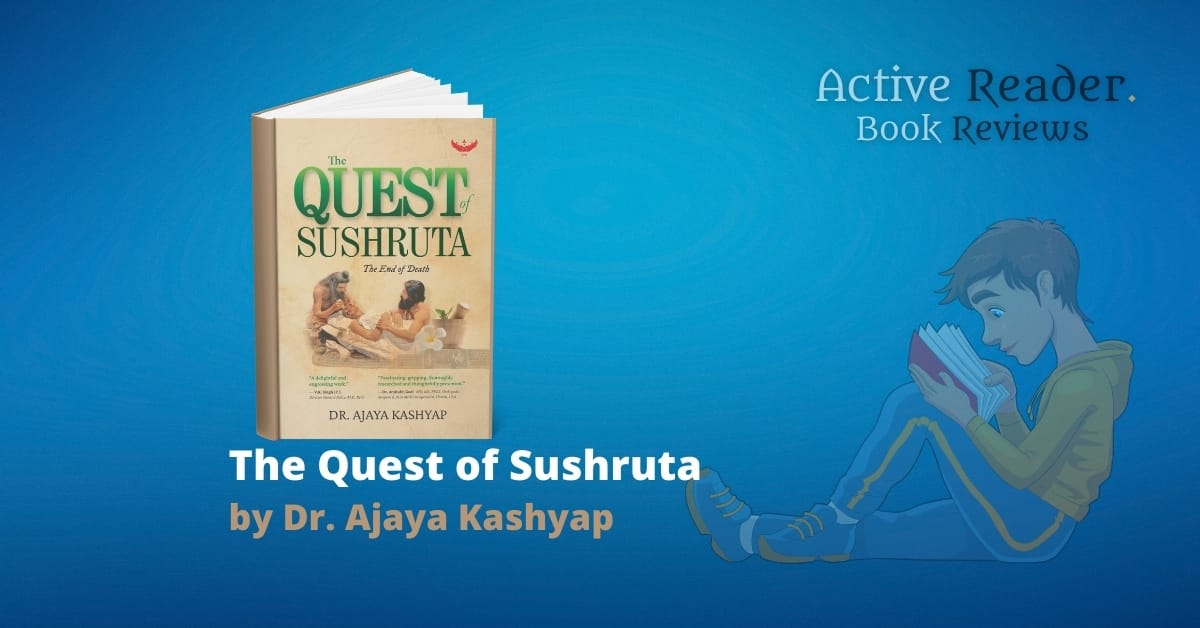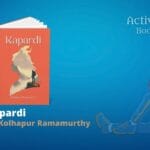Dr. Ajaya Kashyap’s The Quest of Sushruta is a rare gem in the landscape of contemporary Indian fiction, offering a profound exploration of the life and legacy of Sushruta, the father of surgery. The novel transcends the boundaries of historical retelling, delving into human existence’s emotional, philosophical, and ethical dimensions. With a narrative rooted in ancient India’s cultural and intellectual vibrancy, Kashyap pays tribute to a pioneering figure and propels readers to ponder the timeless relevance of Sushruta’s contributions to medicine and human resilience.
Storyline
The novel opens in the kingdom of Kosala, where a devastating plague sets the stage for young Sushruta’s formative years. Witnessing his mother’s selfless service and eventual martyrdom during the epidemic, Sushruta’s character is indelibly shaped by loss and compassion. Her deification as Sheetla Devi, the Goddess of Healing, underscores the profound impact of her sacrifice.
Raised by the enigmatic Zara Ma, Sushruta learns invaluable lessons that fuse myth with morality, preparing him for his eventual journey. His formal education begins at the Gurukula of Vishwamitra, where he excels intellectually but struggles with the physical demands of a warrior’s training. This dichotomy between intellect and brute strength becomes a recurring theme in his life.
Sushruta’s personal life takes a dramatic turn when he meets Uma, the Janapadi Devi, whose beauty and spiritual depth captivate him. Their secret union is marred by tragedy when Prince Java, spurned by Uma, commits a heinous act of violence that leaves Uma disfigured. Devastated by her presumed death, Sushruta seeks solace in Kashi, the city of death and rebirth, where he meets Guru Deodas, the healer who shapes his destiny.
The novel chronicles Sushruta’s transformative journey as he pioneers the study of anatomy through dissection, an act considered taboo but essential for medical advancement. Along the way, he encounters pivotal figures like Bishnu, Ganga Ma, and Ardaas, whose lives enrich his understanding of surgery, childbirth, and the ethical complexities of medicine.
The climax sees Sushruta reunited with Uma and their son Agni during the Kumbha festival, symbolising the cyclical nature of life and the enduring power of love and resilience. The epilogue cements Sushruta’s legacy, highlighting his influence on future generations, including Jeevak, the physician to the Buddha.
Themes, Plot, Narrative, and Storytelling
Dr. Kashyap’s narrative is meticulous and evocative, seamlessly weaving historical authenticity with fictional elements. At its core, The Quest of Sushruta explores universal themes of loss, love, resilience, and the relentless quest for knowledge. The plot’s progression mirrors Sushruta’s intellectual and emotional growth, offering readers a deeply immersive experience.
The narrative’s strength lies in its layered storytelling. Kashyap deftly balances the historical and philosophical aspects of the novel, ensuring neither overshadows the other. The vivid descriptions of ancient India’s societal norms, medical practices, and spiritual beliefs create a rich tapestry that transports readers to a bygone era. However, the novel is not without its flaws. The narrative’s pace slows at times, particularly during sections heavy with philosophical musings. While these moments enrich the thematic depth, they may challenge readers seeking a more fast-paced plot.
The author’s characterisation of Sushruta is particularly commendable. Kashyap presents him as a multidimensional figure—a compassionate healer, a conflicted individual grappling with ethical dilemmas, and a resilient pioneer who defies societal conventions. Supporting characters like Zara Ma and Uma are equally compelling, their arcs serving as vital catalysts in Sushruta’s journey.
Kashyap’s prose is both eloquent and accessible, balancing scholarly insight and emotional resonance. His ability to articulate complex medical and ethical concepts in a manner that engages a diverse readership is a testament to his narrative skill.
Placing The Quest of Sushruta in Contemporary Indian Fiction
In the broader landscape of contemporary Indian fiction, The Quest of Sushruta stands out as a work of immense intellectual and cultural significance. While Indian literature has often celebrated mythological and historical narratives, Kashyap’s novel distinguishes itself by focusing on a lesser-known yet profoundly impactful figure. I do not mean to sound otherwise by saying that Sushruta is a lesser-known figure in Indian history! However, in the present scenario, the father of surgery has certainly faded into the backdrop as Gen-Z is busy engaging with the latest tech and innovations. Therefore, Dr. Kashyap’s attempt is genuinely appreciable and vital.
The novel’s emphasis on Sushruta’s scientific contributions aligns with a growing interest in reclaiming India’s rich intellectual heritage. Unlike many contemporary works that lean heavily on mythological retellings, Kashyap’s approach is rooted in meticulous research, offering readers a nuanced understanding of ancient Indian medicine and its ethical dimensions.
Furthermore, the novel resonates with contemporary debates surrounding the intersection of tradition and modernity. By portraying Sushruta as a progressive thinker who challenges societal taboos, Kashyap underscores the timeless relevance of questioning established norms to foster innovation and growth.
Celebrating Indian Ethos, History, and Philosophy
One of the most remarkable aspects of The Quest of Sushruta is its celebration of Indian ethos, history, and philosophy. Kashyap’s portrayal of ancient India is both reverent and realistic, capturing the complexities of a civilisation grappling with questions of morality, mortality, and progress.
The novel’s exploration of medical ethics, mainly through Sushruta’s struggles with dissection and experimentation, reflects India’s philosophical traditions that value the sanctity of life. Kashyap’s depiction of Kashi as a microcosm of life and death further reinforces the cyclical nature of existence, a concept deeply embedded in Indian thought.
The story also celebrates the resilience and ingenuity of Indian society, highlighting the pivotal role of individuals like Sushruta in shaping its intellectual and cultural legacy. Through characters like Zara Ma and Uma, Kashyap pays homage to the strength and wisdom of women, often overlooked in historical narratives.
What truly distinguishes the novel is its ability to bridge the gap between history and philosophy. Kashyap’s narrative invites readers to reflect on timeless questions of identity, purpose, and the human condition, making The Quest of Sushruta a work of enduring relevance.
Conclusion
Dr. Ajaya Kashyap’s The Quest of Sushruta is a triumph of historical fiction, offering readers a profoundly engaging and thought-provoking exploration of one of India’s most significant pioneers. Through its vivid storytelling, rich characterisation, and meticulous research, the novel brings Sushruta’s story to life and highlights the enduring relevance of his contributions to medicine and human resilience.
By celebrating Indian ethos, history, and philosophy, Kashyap has crafted a narrative that transcends time, resonating with readers personally and intellectually. While the novel’s philosophical depth may challenge some readers, its emotional and intellectual rewards are well worth the effort. The Quest of Sushruta is not just a story of healing and heritage but a testament to the indomitable spirit of humanity, making it a must-read for anyone seeking a deeper understanding of India’s cultural and intellectual legacy.
Get a copy from Amazon India now – Click Here.
Review by Abhishek for Active Reader
The Quest of Sushruta by Dr. Ajaya Kashyap Book Review
- Active Reader's Critical Rating
Summary
A significant contribution to the growing impact of Indian English fiction… the novel is a must-read for anyone who wants to read a philosophical and historically rich fiction based on Indian themes.



No Comment! Be the first one.